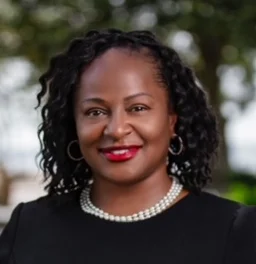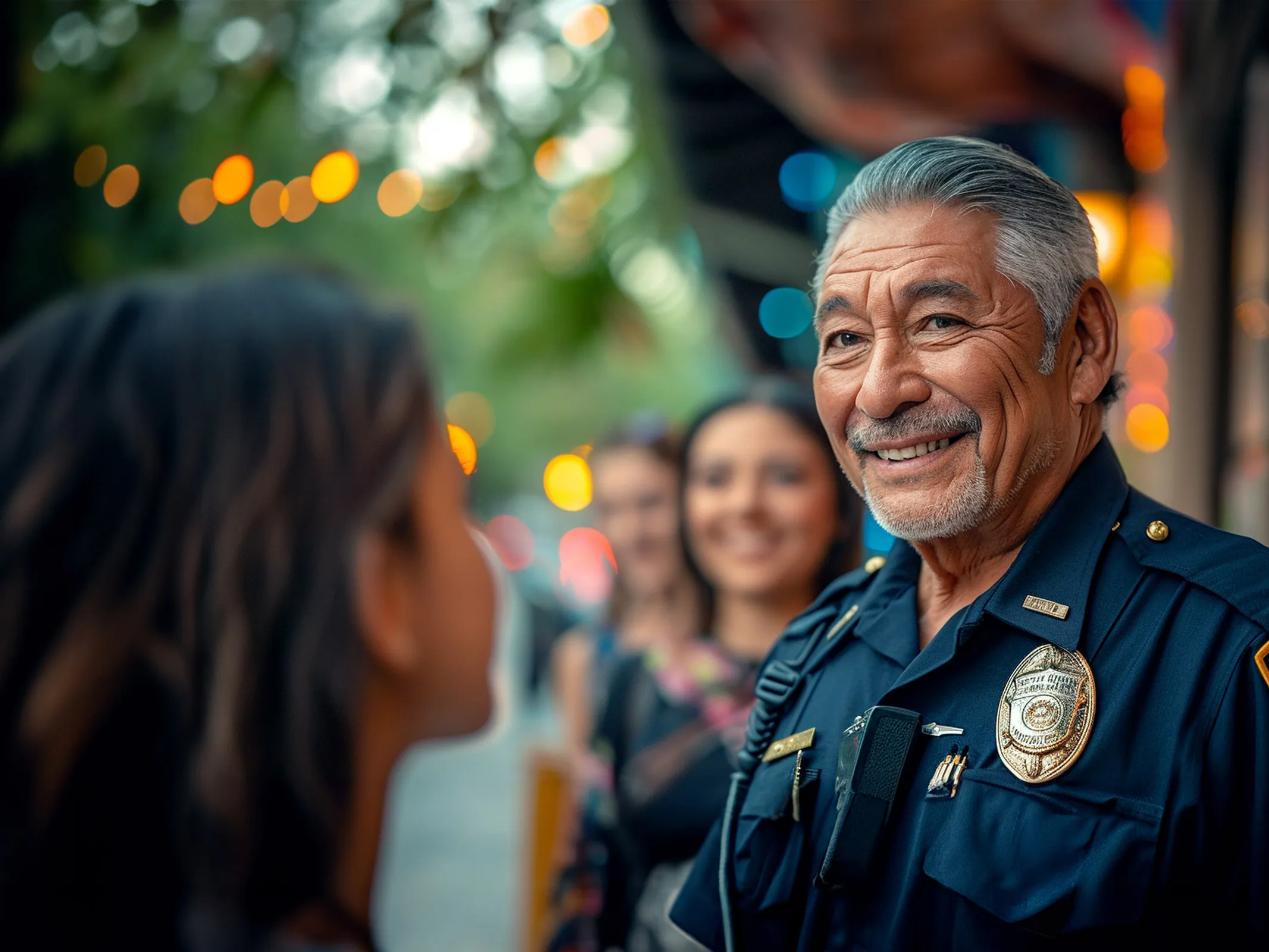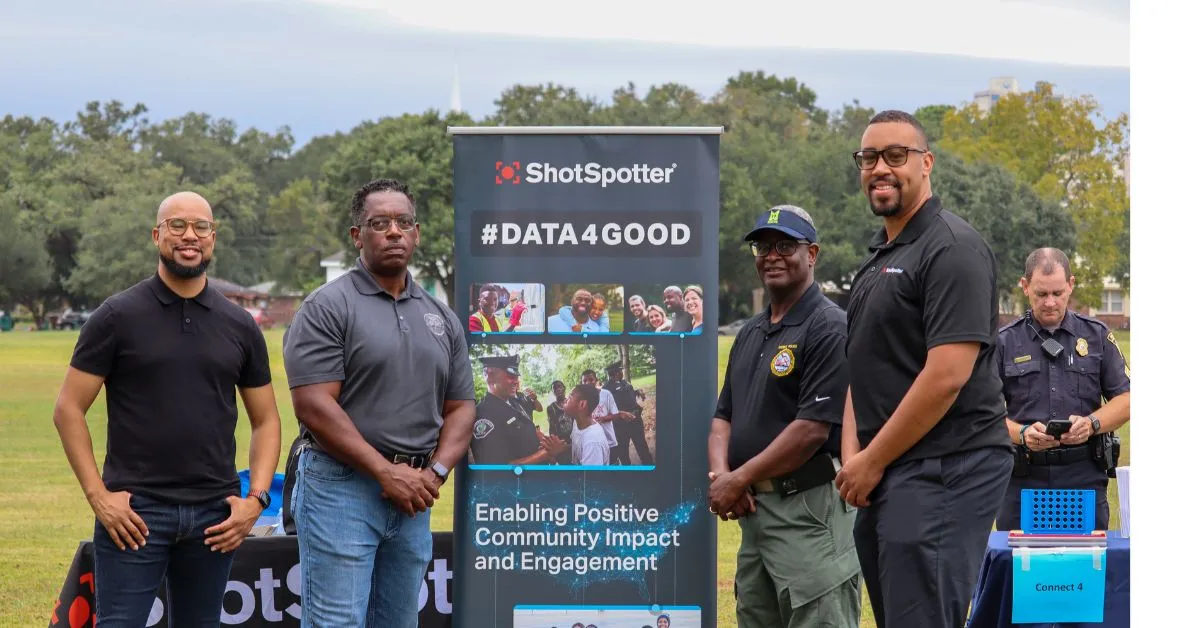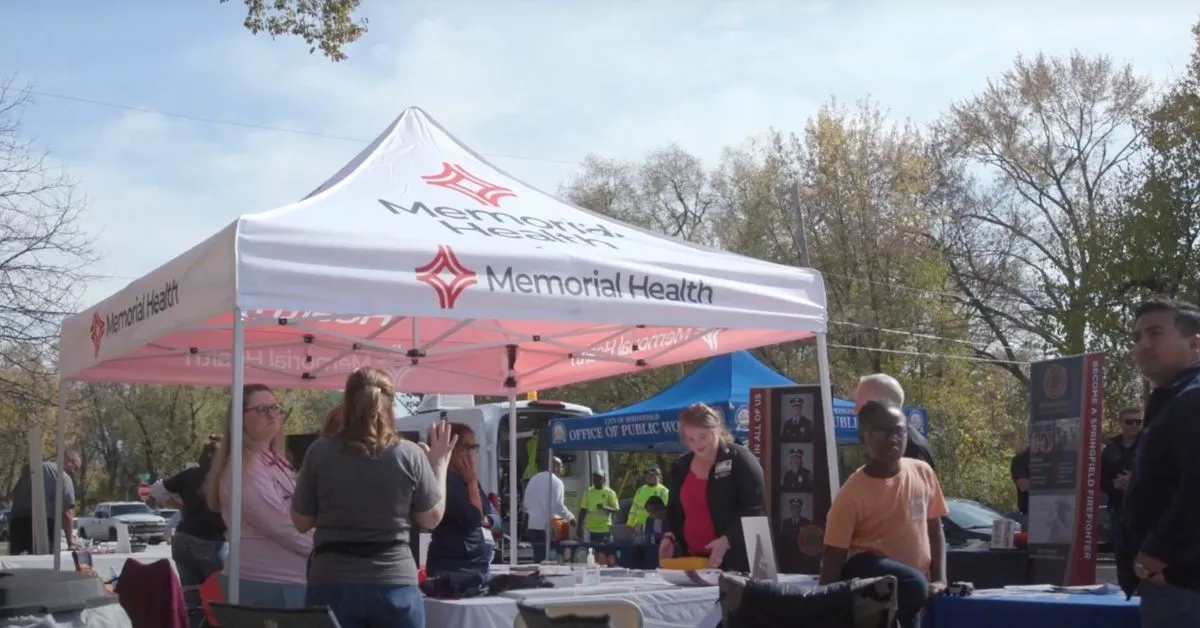At the recent IACP conference, speaker Robin Engel from the National Policing Institute and panelists Karhlton Moore from the U.S. Department of Justice, Bureau of Justice Assistance (BJA), Tarrick McGuire from the Arlington Police Department, Shon Barnes, Ph.D. from the Madison Police Department, and Obed Magny from the Sacramento Police Department spoke at a session titled “The 54th Mile Policing Project: Bridging the Divide in Police-Race Relations.”
The 54th Mile Project was created by Dr. Shon Barnes, Dr. Obed Magny, and Tarrick McGuire and focuses on police diversity and improving community relations. The vision was spearheaded by Mr. McGuire, who desired to recreate March 7, 1965, along the Edmund Pettus Bridge in Selma, Alabama, which was known as Bloody Sunday. The events of Bloody Sunday entailed Alabama State Troopers brutally beating civil rights protestors as they marched across the bridge. As Black men living in America, Barnes, Magny, and McGuire agreed this was a necessary cause that impacted many law enforcement officers’ lives. The project aided them in examining and understanding the plights of iconic civil rights leaders who were faced with many adversities when a justice system was unjust to Black and Brown people.
The trio ventured out on a physical and spiritual journey walking 54 miles from Selma, Alabama to Montgomery, Alabama to aid in their appreciation of the sacrifices made by many. As leaders in law enforcement, witnessing inequities in predominately Black and Brown communities, they have sought to change the future of policing through reform and leading from the front. The National Policing Institute has partnered with Dr. Barnes, Dr. Magny, and Mr. McGuire to develop a training curriculum to be used to assist in changing the trajectory of law enforcement with solutions-oriented policing. Mr. McGuire has charged law enforcement officers to identify that 54th mile and determine their why in policing.
Law enforcement officers have taken an oath to serve and protect all people no matter their race or socioeconomic status. Legitimacy in policing is required, not suggested. Police executives must be at the forefront of promoting criminal justice reform and educating officers in diversity, equality, and inclusion. The 54th Mile Project is the holistic approach to bridge the gap between police and the community. Community engagement consists of interacting with residents, understanding social and environmental issues, promoting activities, providing resources, and showing a genuine interest in the people who reside in the community. Agencies should work with public health and other social services to share information related to crimes, crime prevention, and other social services that may be needed. Agencies with ShotSpotter technology can utilize SoundThinking’s Data for Good program to support these types of collaborative efforts. For an extended period, police have been trained to be warriors, however, in most instances, communities need a guardian. Statistics support the fact that more than 90% of service calls are quality of life issues, which do not warrant the toughness of a warrior, but the empathy of a guardian. One must identify his or her 54th mile and determine the why in policing to move towards bridging the divide in police-race relations.





